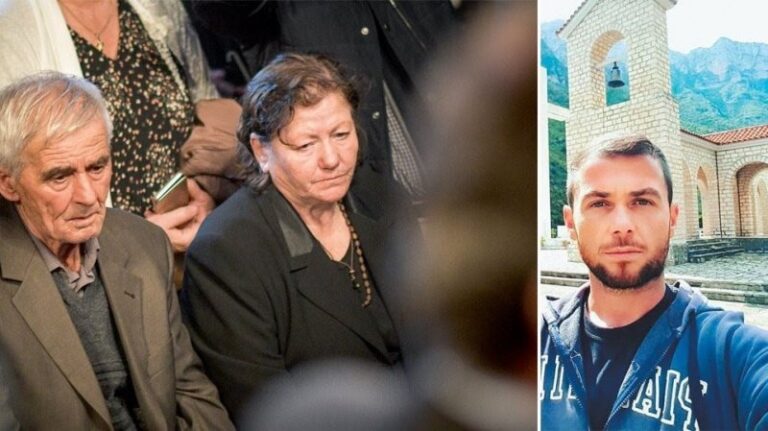
The family of Konstantinos Katsifas is in the spotlight of Albanian Justice in Northern Epirus (southern Albania) and has been summoned to the Argyrokastro (Αργυρόκαστρο, Albanian: Gjirokastër) Court of First Instance on charges of illegal construction work, himara.gr reported.
The persecution is related to a shrine that the family wanted to place on the mountain at the location where their son was killed by Albanian police on October 28, 2018.
Konstantinos, a 35-year-old Greek man was martyred when he was shot dead by Albanian police near the village of Vouliarates (Βουλιαράτες, Albanian: Bularat), around 5km from the Greek-Albanian border.
The shooting exchange between him and Albanian police began when Albanian police removed the Greek flag for “OXI Day” celebrations to commemorate the Greek soldiers who lost their lives during World War II, many of them dying in Northern Epirus when driving the Italian invaders out of Greece.
A few days ago, Konstantinos' father, Giannis Katsifas, together with the mayor of Vodristas (Βόδριστα, Albanian: Bodrishtë), who intended to help the family in the construction of a small chapel in memory of Konstantinos, were questioned by Albanian prosecutors.
This comes as the Greek minority in Albania are the subject of robberies and harassment from Albanians.
Local officials point out that authorities in Albania show no interest in protecting residents' property.
Only in the last few nights in the village of Krania (Κρανιά, Albanian: Kranë), gang members stormed five houses, taking everything they found, and after loading the loot on their cars, disappeared.
The community leader of the village Iraklis Kitsios (Ηρακλή Κίτσιο) points out that despite the repeated protests of the villagers, neither the state nor the municipal police show interest.
According to the members of the Greek minority, the ultimate goal of these raids is to intimidate the expatriates in order to leave their homes and flee to Greece.